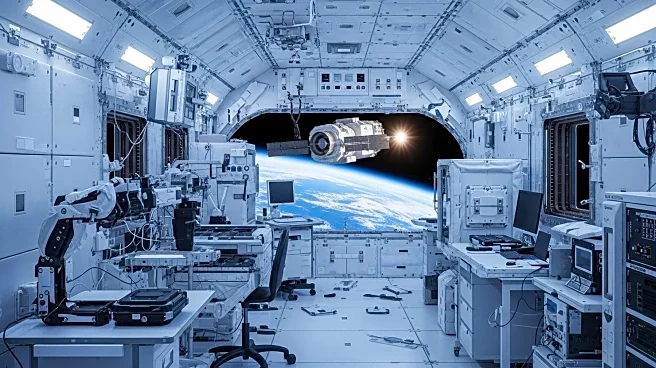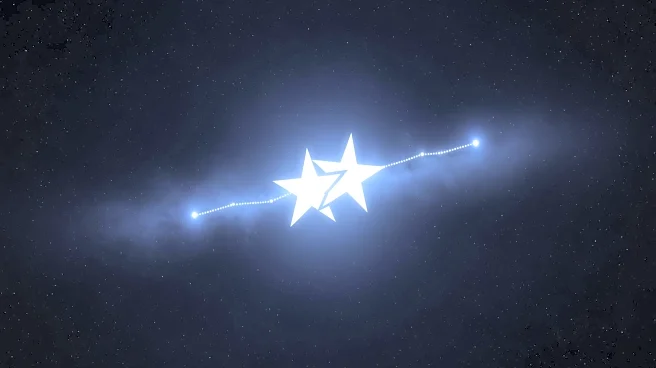What's Happening?
NASA's International Space Station (ISS) is concluding a week of space biomedical research focused on human tissue production and addressing space-induced head and eye pressure. The research involves bioprinted liver tissues delivered by SpaceX Dragon, which are being studied to understand microgravity's impact on blood vessel formation in engineered tissues. This research aims to advance treatments for astronauts on long-duration missions and improve bioprinting techniques for patient therapies on Earth. Additionally, NASA engineers are testing a thigh cuff to counteract fluid shifts in weightlessness, potentially reducing pressure on astronauts' heads and eyes. The ISS is also preparing for two upcoming cargo missions, including the launch of Progress 93 and Cygnus XL, which will deliver essential supplies and scientific experiments.
Why It's Important?
The ongoing research at the ISS is crucial for developing medical solutions that can protect astronauts during extended space missions, which are essential for future exploration endeavors. Understanding how microgravity affects human tissues can lead to breakthroughs in bioprinting technology, benefiting medical treatments on Earth. The thigh cuff experiment addresses common spaceflight symptoms, potentially improving astronaut health and performance. The upcoming cargo missions are vital for sustaining the ISS crew and advancing scientific research, highlighting the importance of international collaboration in space exploration.
What's Next?
The ISS crew will continue monitoring the bioprinted tissues and conducting experiments with the thigh cuff to gather more data on its effectiveness. The Progress 93 cargo mission is scheduled to launch on September 11, followed by the Cygnus XL mission on September 14. These missions will deliver crucial supplies and scientific equipment, supporting ongoing research and daily operations aboard the ISS. The crew will also engage in training for remote-controlled spacecraft rendezvous techniques, ensuring preparedness for any docking challenges.
Beyond the Headlines
The research conducted on the ISS not only advances space exploration but also contributes to medical science on Earth. The insights gained from studying human tissues in microgravity could revolutionize bioprinting and regenerative medicine, offering new treatment possibilities for various health conditions. The collaboration between NASA and international partners underscores the global effort to push the boundaries of scientific knowledge and technological innovation.









